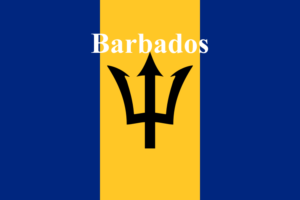 Based on the philosophy that human resource development is key to social, economic and political growth, Barbados’ education system guarantees free school for all children ages 5 to 16. Education is regulated by the Ministry of Education, Human Resource and Development, which develops curriculum, supervises and administers all examinations, and supervises day-to-day operations of the country’s school systems.
Based on the philosophy that human resource development is key to social, economic and political growth, Barbados’ education system guarantees free school for all children ages 5 to 16. Education is regulated by the Ministry of Education, Human Resource and Development, which develops curriculum, supervises and administers all examinations, and supervises day-to-day operations of the country’s school systems.
School attendance for Barbadian children between the ages of 5 and 16 is mandatory, and the majority of public schools are co-ed. Pre-school or early childhood education programs are provided for children between the ages of 3-5, while primary schools serve children ages 5-11. The principle goal of secondary education – provided for children ages 11 to 16 – is that all students acquire the necessary skills and knowledge to prepare them for future jobs and careers, while gaining a high degree of literacy and understanding spanning a broad variety of subject areas.
Secondary education culminates with the Caribbean Examination Council Examination; scoring for these exams is depicted below:
|
Overall Grades |
Profile Grades |
Description |
|---|---|---|
|
I |
A |
Candidate shows a comprehensive grasp of the key concepts, knowledge, skills and competencies required by the syllabus. |
|
II |
B |
Candidate shows a good grasp of the key concepts, knowledge, skills and competencies required by the syllabus. |
|
III |
C |
Candidate shows a fairly good grasp of the key concepts, knowledge, skills and abilities required by the syllabus. |
|
IV |
D |
Candidate shows a moderate grasp of the key concepts, knowledge, skills and competencies required by the syllabus. |
|
V |
E |
Candidate shows a very limited grasp of the key concepts, knowledge, skills and competencies required by the syllabus. |
|
VI |
F |
Candidate shows a very limited grasp of the key concepts, knowledge, skills and competencies required by the syllabus. |
Barbados Community College uses the following grading scale:
|
Grade |
Percentage |
Description |
|---|---|---|
|
A+ |
90-100 |
Exceptional Performance |
|
A |
80-89 |
Excellent |
|
B+ |
75-79 |
Very Good |
|
B |
70-74 |
Good |
|
C+ |
65-69 |
Fairly Good |
|
C |
60-64 |
Satisfactory |
|
D |
50-59 |
Passing |
|
F |
0-49 |
Failing |
In 1996, Barbados implemented far-reaching curriculum reforms, designed to promote equity and diversity in the educational system. A child-centered, holistic approach to learning was also adopted in an effort to better prepare students for life in a technologically advanced society. Primary school curriculum is organized around learning areas, which are integrated to demonstrate for students the inter-relatedness of knowledge. The focus of the secondary school curriculum is on the student’s interaction with the material, which is intended to enable students to learn at their own pace. Students pursue targets in compulsory subjects but may also take elective courses.
Following completion of the CXC examinations, students wishing to pursue post-secondary education who have earned passes of grade II or better on the exams may earn spots at one of the four schools offering advanced-level classes, or at Barbados Community College. Students interested in a teaching career may apply to Erdiston Teacher College.
Following secondary school, Barbadian students interested in pursuing further education sit for the CSEC and students who get above a II are considered to have passed. With the CSEC, students can attend postsecondary institutions to pursue degrees such as a two-year Associate’s degree or a four-year Bachelor’s degree.
© 2025 Gaetranslations | Terms & Conditions
Website by: Timefortheweb